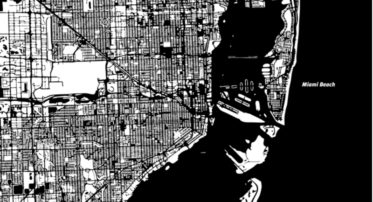Want to Learn More?
Drop us a line. We'd love to hear from you!
Due Diligence & Why the Right Documents Make All the Difference

Ever heard of Murphy’s law, that if something can go wrong, it will? Mistakes happen all the time. That’s why the value of due diligence can’t be overstated. Some mistakes are easy to fix, while others are incredibly costly. The example that follows is one of the latter.
Due Diligence Pays for Itself
J.P. Morgan loaned a large sum to General Motors (GM) as part of a $300 million synthetic loan. In a separate agreement, the bank joined other lenders in loaning GM $1.5 billion. When GM finished paying off the first loan, it prepared the necessary documents to release J.P. Morgan’s interest in the GM property used to secure the $300 million.
A Mayer Brown partner assigned the job to an associate and instructed him to assemble a closing checklist and drafts of documents needed to pay off the Synthetic Lease and terminate J.P. Morgan’s interest in GM property relating to that Synthetic Lease. In preparing that checklist, the Mayer Brown associate asked a paralegal, who was unfamiliar with the transaction or the purpose of a request form, to perform a search for UCC-1 financing statements recorded against GM in Delaware.
According to the Second Circuit’s opinion, the paralegal’s search identified three UCC-1s. Neither the paralegal nor the associate realized that while the first two UCC-1s were related to the Synthetic Lease, the third was instead related to the Term Loan totaling $1.5 billion.
You probably see where this is going. The associate and the partner approved the paralegal’s work and prepared a UCC-3 statement that released the interest that secured the $1.5 billion loan as well, which will be an issue if General Motors goes bankrupt and J.P. Morgan is told it’s in the unsecured line.
So on the surface, it looks like Mayer Brown screwed up. Did anyone else see the documents? Of course they did.
According to the Second Circuit, no one at General Motors, Mayer Brown, J.P. Morgan, or the bank’s counsel Simpson Thacher & Bartlett LLP, noticed the error, despite copies of the Closing Checklist and UCC-3 termination statements being sent to individuals at each organization.
After signing off on the agreement to release its interest, J.P. Morgan requested the court reverse the deal on the grounds of ‘No Consequences.’ Incredibly, the bankruptcy court agreed with them. The Second Circuit disagreed. J.P. Morgan and Simpson Thacher reviewed all the documents and agreed to file them, so they assumed responsibility for their contents. What’s the point of making deals if the law doesn’t back them up? Lawyers have a duty to scrutinize what comes across their desks.
At the end of the day, Mayer Brown is fortunate that it’s error worked out in its client’s favor. While embarrassing, GM can’t be too angry. Simpson Thacher’s inability to catch the mistake is far worse, especially considering the amount of money on the line.
The moral of the story: remember the importance of due diligence in document research and retrieval. While a paralegal can easily make a mistake, a trusted document service company will not.
Clarifying Legal & Financial Risk with All American Document Services
All American Document Services is a national public records research company that has become a top choice for due diligence, document filing/retrieval, service of process, and background checks for a variety of clientele. We support the title insurance and lending industry with public records research and retrieval and provide title abstracts, legal due diligence, courthouse retrieval, and many different searches, including municipal lien searches, estoppel, UCC searches, and corporate searches for llaw firms, businesses, real estate agents, and private investigators.
For more information on how we can help you reduce legal and financial risk, please visit our homepage or contact us today!
Leave a Reply
Recent Blogs
-

Why Choose AADS for Miami-Dade County Municipal Lien Searches?
Jan 08, 2020All American Document Services has become a leading provider of Miami-Dade County Municipal Lien Searches because we understand the unique laws and customs of the ...
READ MORE -

Why Switch to AADS for Florida Title and Lien Searches?
Dec 09, 2019Three good reasons: We treat you better, we can help you clear files faster, and we have an extended Black Friday sale on Florida Title ...
READ MORE -

Is Your Vendor Complying with the Florida HOA Estoppel Law?
Nov 25, 2019HOA estoppel certificates are an essential part of title commitment and of real estate due diligence. That’s why title companies and real estate attorneys in ...
READ MORE

